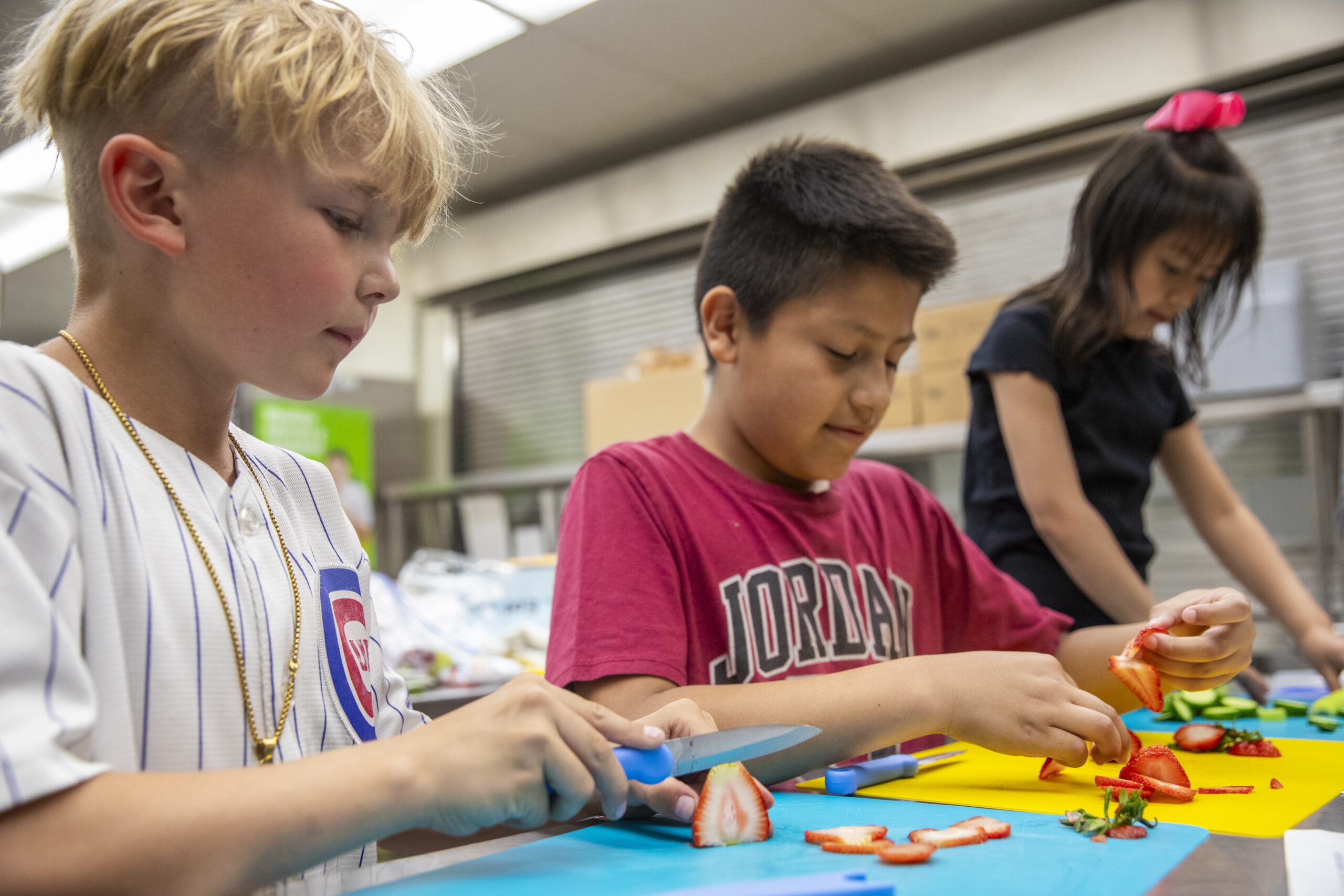Slow Food Denver, founded in 2001, is committed to the enjoyment of local food by all members of the community, seeking to create a more just and sustainable food system. We believe in good, clean, and fair food for all.
Slow Food Denver’s Seed to Plate program offers weekly impact-driven classes for youth that address inequalities within the community while inspiring healthy lifelong habits. Our learner-driven approach covers topics such as nutrition, gardening, food systems, healthy eating, kitchen skills, and also focuses on improving mental health, teamwork, creativity, and intuition around food. Our well-trained instructor team uses multicultural recipes and seasonal, locally sourced produce to illuminate the connection between where food comes from and how it is prepared. We provide students with skills and information to make educated choices around food, eat intuitively, and truly understand the farm to plate process. Ultimately, we hope to help the children in our programs to become active, educated consumers in their local food system both during and beyond our classes.
Our grant funded Seed to Plate programs are held at no-cost for students and families at sites in neighborhoods defined as Disproportionately Impacted by the State of Colorado. These populations tend to be composed largely of historically marginalized groups, so most of our participants are Hispanic, Black, or Asian. The majority of our work is with elementary aged children, though we also have programs for middle school, high school, post-secondary school, and family populations. We typically provide programs after school, hosting three 6-12 weeks terms per school year with 10 youth per session. Students who take our classes receive a weekly meal with fresh, local produce while learning about the entire seed-to-plate process through hands-on experiences in the kitchen and garden.
The growth of our youth education programming has been tremendous in the past few years. In 2021 we hosted 299 classes at 18 sites, serving 5362 meals to 742 students, 458 of whom participated for free. By 2024 we had grown to host 989 classes at 59 sites, serving 11633 meals to 2805 students, 1775 of whom participated for free.
